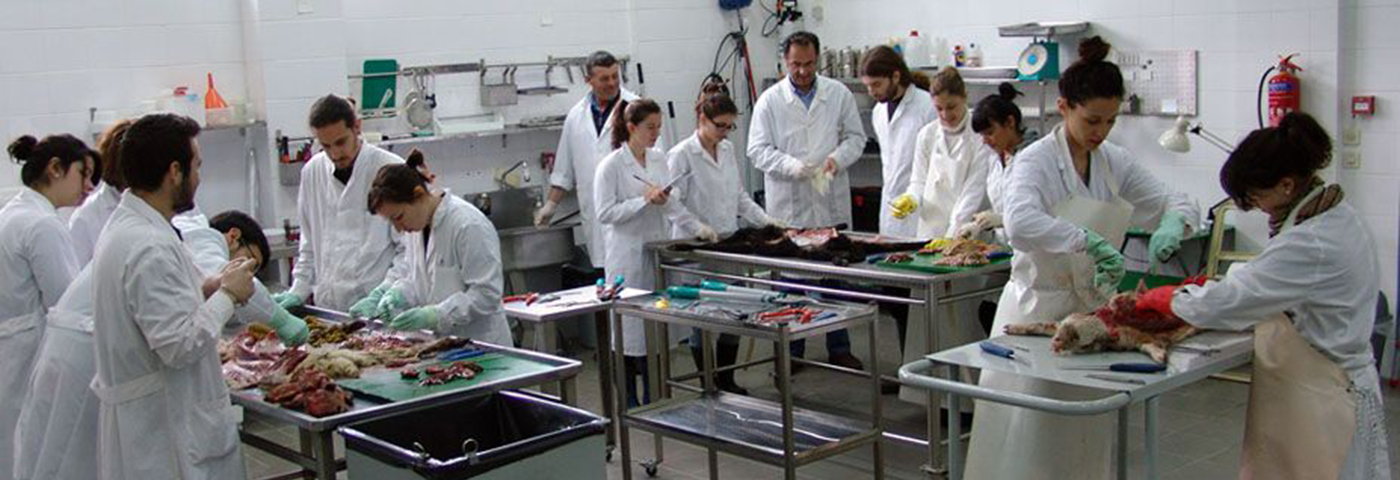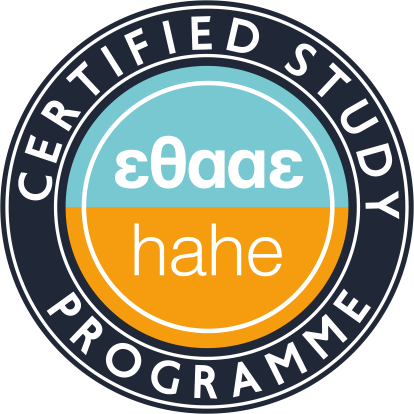
Curriculum 2023-2024

Download the 2023-2024 Curriculum of the Faculty by clicking here
European Credit Transfer and Accumulation System (ECTS)
The European Credit Transfer and Accumulation System (ECTS) is a student-centered system for accumulating and transferring credit units, based on the transparency of learning outcomes and learning processes. It aims to facilitate the planning, delivery, evaluation, recognition and validation of degrees and learning modules, as well as student mobility. The European Credit Transfer and Accumulation System (ECTS) is a tool of the European Higher Education Area for making studies and courses more transparent.
ECTS credits are based on the workload, students need to achieve the expected learning outcomes. Learning outcomes describe what the learner is expected to know, understand, and be able to do after the successful completion of the learning process. The workload consists of the time typically needed for a student to devote to completing all learning activities (such as attending classes, seminars, assignments, internships, independent individual study and exams) that are required to achieve the expected learning outcomes. 60 ECTS credits correspond to the workload of an entire year of formal full-time study (academic year) and the related learning outcomes.
Credits are awarded to students upon completion of the learning activities required by a formal curriculum and the successful evaluation of the learning outcomes achieved. Credits can be accumulated for the purpose of obtaining degrees, as decided by the Institution that grants the title.
Credits granted under one program can be transferred to another program offered by the host institution. This transfer can only be made if the Institution granting the degree recognizes the credits and the related learning outcomes. The partner institutions must agree in advance on the recognition of study periods abroad. More information is provided in the ECTS Guide.
More info is available in the ECTS Guide.
Ελληνικό Πλαίσιο Προσόντων
Το Ελληνικό Πλαίσιο Προσόντων ακολουθεί το μοντέλο του Ευρωπαϊκού Πλαισίου Προσόντων με μία αρχιτεκτονική δομή οκτώ επιπέδων που καλύπτουν ολόκληρο το φάσμα των προσόντων από την πρωτοβάθμια έως την τριτοβάθμια ανώτατη εκπαίδευση.
Για περισσότερες πληροφορίες click here
Qualifying Examinations
Δείτε την ανακοίνωση για τις κατατακτήριες εξετάσεις του 2024
ΦΕΚ-1329-τ.-Β_02-07-2015 Κατατακτήριες εξετάσεις και Αναπηρία/Ειδικές μαθησιακές ανάγκες
ΔΙΕΥΚΡΙΝΙΣΕΙΣ ΥΠΟΒΟΛΗΣ ΑΙΤΗΣΗΣ
All qualifying exam forms are available at the Secretariat Webpage.
Undergraduate Studies
- The Course Outlines of the Undergraduate Program is available here.
- Ο Undergruaduate Studies Regulation is available at the Regulations Webpage.
- Ο Internship Regulation is available at the Regulations Webpage.
- The Timetable of current Semester is available in the home page of the website (button "Timetable").
- Διακοπή Σπουδών και Μερική Φοίτηση: Για πληροφορίες σχετικά με τη διακοπή σπουδών και τη μερική φοίτηση click here
- The Ακαδημαϊκό ημερολόγιο 2024.25 είναι διαθέσιμο εδώ.
- Πληροφορίες για τους πρωτοετείς φοιτητές είναι διαθέσιμες εδώ.
All undergraduate study forms are available at the Secretariat Webpage.
Postgraduate Programme
The need for specialization in the practice of the veterinary profession and the rapid increase of available knowledge in the field of veterinary science have created the need for postgraduate education.
- Postgraduate Studies Program of the Department of Veterinary Medicine of the University of Thessaly in co-ordination with the Department of Agronomists of University of Epirus entitled "Aquaculture - Pathological problems of farmed aquatic organisms".
M.Sc. Course Webpage is available here.
Postgraduate Studies Regulation is available at the Regulations Webpage.
All Postgraduate Studies forms are available at the Secretariat Webpage.
Doctoral Diploma, Ph.D.
The Doctoral Diploma is an academic title, which certifies the substantial contribution of the holder to the development of key areas of knowledge, in-depth understanding of the scientific subject and the elaboration of original or innovative research in the field of science.
The Regulation of Doctoral Studies of our Faculty was drafted in accordance with the current legislation. For those issues that are not mentioned in it, the provisions of law 4485/2017 apply.
The Regulation aims to regulate issues related to the preparation of a doctoral dissertation at the Faculty, based on the relevant legislation. A revision may take place every three years or extraordinarily if requested by a member of the General Assembly. The Regulation is supplemented or amended by a decision of the General Assembly of the Faculty, following a proposal of the Dean based on a proposal of a relevant committee appointed for this purpose. Matters that are not mentioned in the existing Regulation, are decided by the General Assembly of the Faculty, based on the current legislation.
The Regulation of Doctoral Studies of the Faculty is available in the Regulations Webpage.
The graph of the process of starting a doctoral dissertation is available here.
All doctoral study forms are available at the Secretariat Webpage.
Post-doc Research
The relevant legislation is available here.
European Veterinary Specialisations
- The Laboratory of Ichthyology and Ichthyopathology is officially recognized from the European Board for Veterinary Specialization - EBVS and the European College of Aquatic Animal Health - ECAAH as official centre of specialization and provides training in European veterinary specialization ‘Aquatic Animal Health’. After the completion of specialization, the title DipECAAH is awarded.
- The Clinic of Obstetrics and Reproduction of the Faculty is officially recognized from the European Board for Veterinary Specialization - EBVS and the European College of Small Ruminant Health Management - ECSRHM as official centre of specialization and provides training in European veterinary specialization ‘Health Management of Small Ruminants’. The specialization of one veterinarian has already been completed, which passed successfully the relevant exams and awarded the title DipECSRHM; currently three veterinarians are specialized.
- The Clinic of Medicine of the Faculty is officially recognized from the European Board for Veterinary Specialization - EBVS and the European College of Veterinary Dermatology - ECVD as official centre of specialization and provides training in the European veterinary specialization ‘Veterinary Dermatology’. After the completion of specialization, the title DipECVD is awarded; currently two veterinarians are specialised in the Faculty.